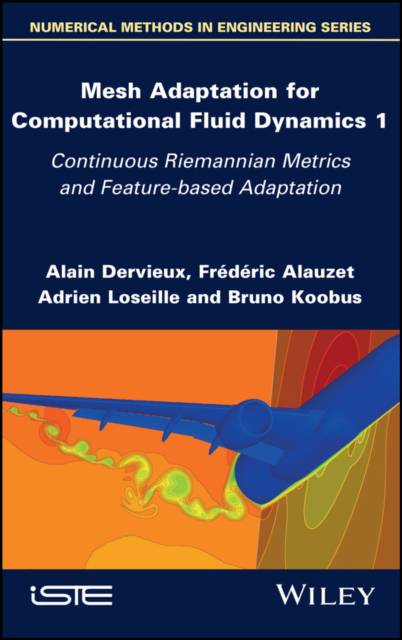
- Afhalen na 1 uur in een winkel met voorraad
- Gratis thuislevering in België vanaf € 30
- Ruim aanbod met 7 miljoen producten
- Afhalen na 1 uur in een winkel met voorraad
- Gratis thuislevering in België vanaf € 30
- Ruim aanbod met 7 miljoen producten
Mesh Adaptation for Computational Fluid Dynamics, Volume 1
Continuous Riemannian Metrics and Feature-Based Adaptation
Alain Dervieux, Frederic Alauzet, Adrien Loseille, Bruno KoobusOmschrijving
Simulation technology, and computational fluid dynamics (CFD) in particular, is essential in the search for solutions to the modern challenges faced by humanity. Revolutions in CFD over the last decade include the use of unstructured meshes, permitting the modeling of any 3D geometry. New frontiers point to mesh adaptation, allowing not only seamless meshing (for the engineer) but also simulation certification for safer products and risk prediction.
Mesh Adaptation for Computational Dynamics 1 is the first of two volumes and introduces basic methods such as feature-based and multiscale adaptation for steady models. Also covered is the continuous Riemannian metrics formulation which models the optimally adapted mesh problem into a pure partial differential statement. A number of mesh adaptative methods are defined based on a particular feature of the simulation solution.
This book will be useful to anybody interested in mesh adaptation pertaining to CFD, especially researchers, teachers and students.
Specificaties
Betrokkenen
- Auteur(s):
- Uitgeverij:
Inhoud
- Aantal bladzijden:
- 256
- Taal:
- Engels
Eigenschappen
- Productcode (EAN):
- 9781786308313
- Verschijningsdatum:
- 21/09/2022
- Uitvoering:
- Hardcover
- Formaat:
- Genaaid
- Afmetingen:
- 156 mm x 234 mm
- Gewicht:
- 530 g

Alleen bij Standaard Boekhandel
Beoordelingen
We publiceren alleen reviews die voldoen aan de voorwaarden voor reviews. Bekijk onze voorwaarden voor reviews.









